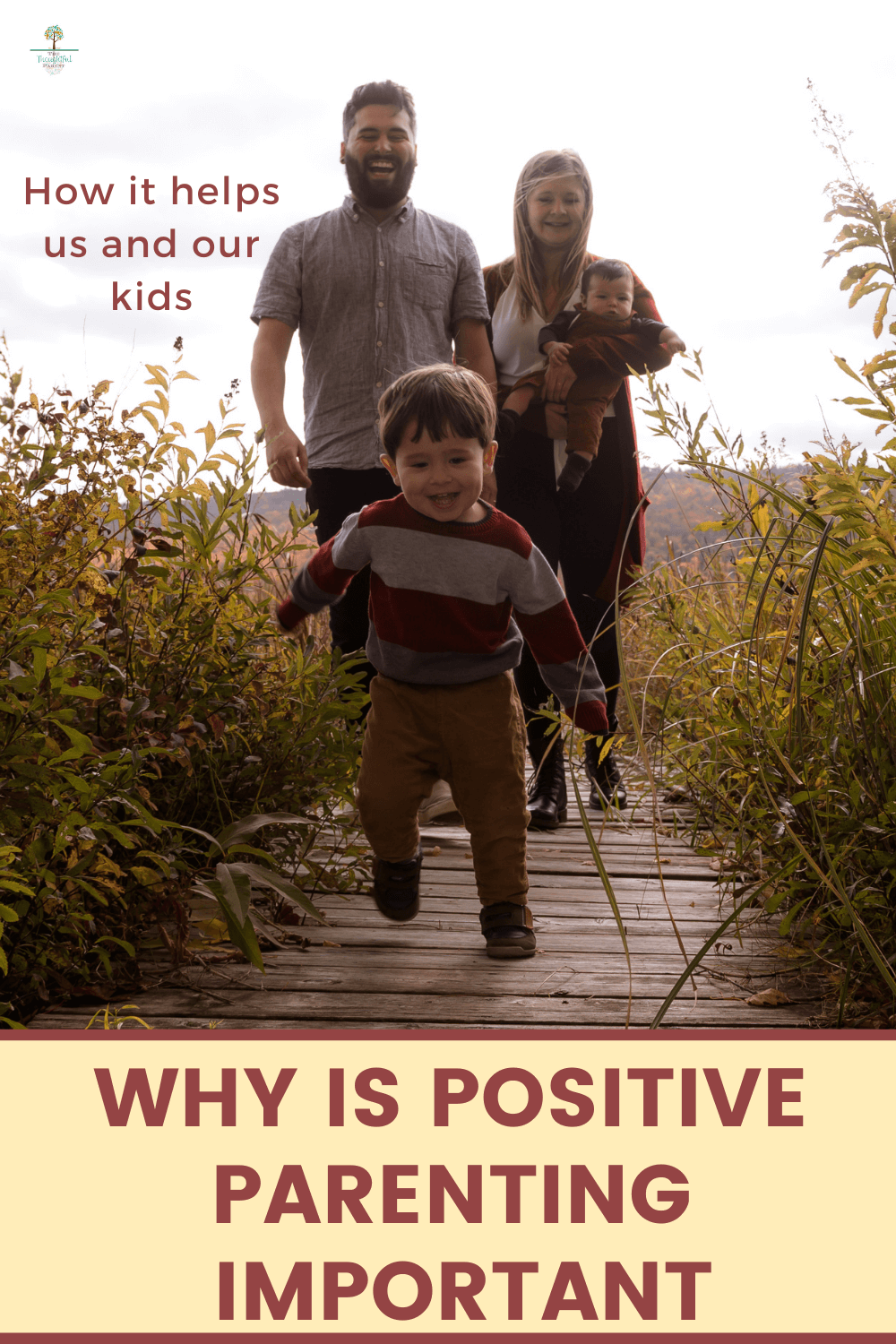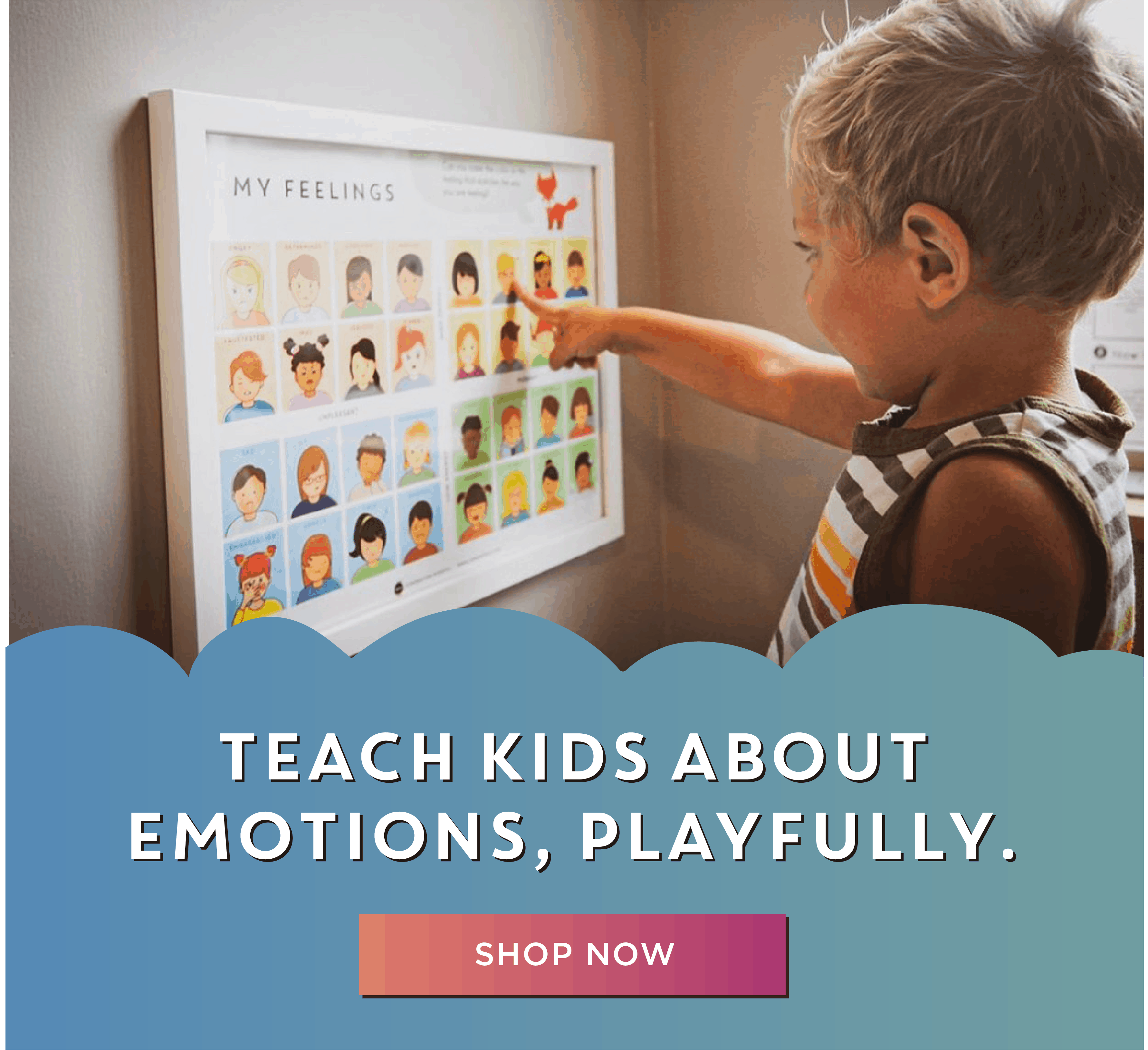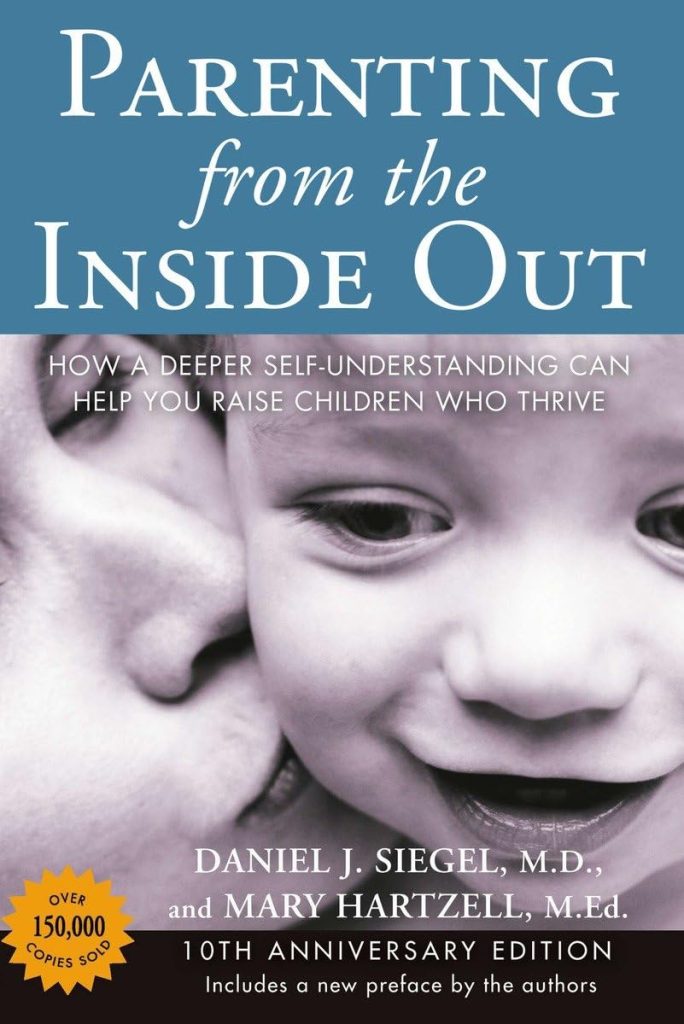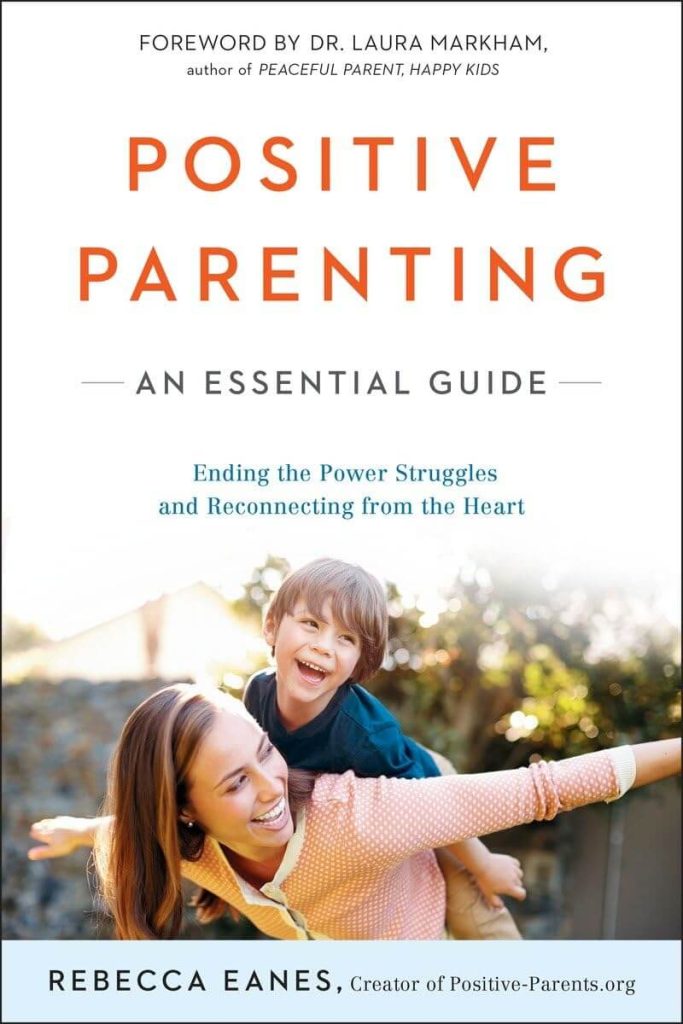Sneak peek: We hear the phrase “positive parenting” a lot, but why is positive parenting important? An overview of positive parenting plus a look at how it helps you focus on the long view of parenting. What is positive parenting and how does it help you and your child grow together?
We hear the phrase “positive parenting” tossed around a lot in the media and parenting circles but oftentimes there is some confusion as to what it really means. Many times people equate it to a “touchy-feely” form of parenting in which no boundaries are enforced. These are common misconceptions. What exactly is positive parenting? Why is positive parenting important?
In reality, positive parenting is really an approach to parenting that focuses on the long view. It helps us keep in mind what type of adult we want to have raised at the end of our parenting journey. The best part is, it’s completely supported by the latest best parenting advice and research.

This post contains affiliate links. Purchasing through these links helps support this blog at no added cost to you.
Traditional parenting styles
From a research perspective, positive parenting overlaps quite a lot with one of the 3 classic parenting styles identified by researcher Diane Baumrind: authoritative parenting. In her seminal work on parenting styles, she categorized parenting into 3 main styles:
- Authoritative parenting: parents provide firm guidance but are emotionally supportive. They explain the reasons behind rules, foster independence and kids’ thinking for themselves. They model emotional regulation and do not punish emotions, but enforce limits on behavior.
- Authoritarian parenting: parents expect “blind obedience” from kids. They provide firm guidance but little emotional support. They often use threats, guilt or punishment to control kids’ behavior (and emotions).
- Permissive parenting: parents provide a lot of emotional support but few or no boundaries or rule

What are some long-term parenting goals that can be achieved through positive parenting?
Like the authoritative approach, positive parenting finds that happy medium between strict, dictatorial-style and permissive, “anything goes” parenting. For me, this is important because it helps us focus on 4 real-life goals that I really value and have come to appreciate more fully as my kids have grown.
Emotional self-regulation
What is an example of positive parenting? Instead of punishing emotions like anger, sadness or fear, the positive parenting style focuses on helping our kids learn effective forms of coping and working through these emotions. At first, they need a lot of help from us to do this. As they mature, however, self-regulation becomes second nature to them and they grow into adults who cope with emotions in healthy ways and hopefully not in destructive ways.
Additionally, positive parenting focuses on how we can guide our children through difficult emotions instead of distracting or trying to take away the difficult emotions. This is key today in our culture where the helicopter parenting trend encourages us to find ways to help our kids avoid difficult situations of failure, sadness or disappointment.
Related reading: Social-Emotional Development: A Parent’s Guide
Root causes of behavior
This is perhaps the aspect of positive parenting I appreciate the most. In our world today, many people want a “quick fix” for many of their challenges or problems. You often hear the titles of articles ringing in your head that promise to fix your parenting challenges in mere days, if not minutes: “potty train your toddler in 3 days,” or “tame toddler tantrums in one easy step.” I hate to burst your bubble, but most of parenting is not that simple.
Children are real people with nuanced behavior and this is what positive parenting recognizes. Instead of teaching us to punish or threaten our kids into submission, positive parenting helps us get to the root causes of our children’s challenging behaviors. Like the classic “iceberg theory” of behavior, through positive parenting, we learn to look beneath the challenging, often unpleasant behavior to see the real need or emotion hidden there.
Parent-child relationship
A few years ago I read this book and it forever changed how I looked at parenting. The author so beautifully reminds us that parenting is not a job that we trudge through to produce a product (our kids) that is perfectly crafted. Parenting is a relationship. It seems like a simple idea but one that is often lost in today’s world. At its heart, parenting is about building a relationship with our child that will (hopefully) last a lifetime.
The positive parenting approach keeps this relationship message front and center. When kids have a strong, heartfelt relationship with us, they want to be with us, they (mostly) want to do what we ask, they want to listen to us. No amount of threat or punishment can replace a strong parent-child relationship. As my older son approaches the tween years, I see this so clearly. As friends become a stronger force in his life, I see how our relationship with him will have to be strong enough to carry him through the temptations and challenges he will face.
Modeling
We all know that the old adage, “do as I say, not as I do” does not really work out well in our parenting life. Modeling the behavior we want to see in our kids is still the best teaching approach of all. This is one aspect of positive parenting that we see acted out in real life every day.

Parents who use this approach, model behavior in many aspects of childrearing including social-emotional regulation (e.g., keeping calm under pressure), fostering kindness, coping with disappointment, fostering learning (e.g., reading), and limiting screen time and social media. By focusing on modeling, in addition to direct instruction, positive parenting gives us a whole new set of tools to help our kids learn the lessons they need to thrive in life.
In the end, these are some of the most important aspects of our children’s lives that will affect the adult they will become. Ultimately, compliance from my child means nothing if it doesn’t serve the larger purpose of helping him grow into a caring, self-reliant adult. The type of adult who develops a strong conscience he can rely upon when making important life decisions.
Related reading: Simple but Effective Calming Strategies Every Family Should Know
This is why positive parenting has not only become a popular but meaningful approach to parenting today. Not only is it based on some of the best knowledge about brain development we have today, but it’s founded on the idea that we are trying to raise competent adults, not just grown-up kids who know how to follow instructions.








Leave a Reply